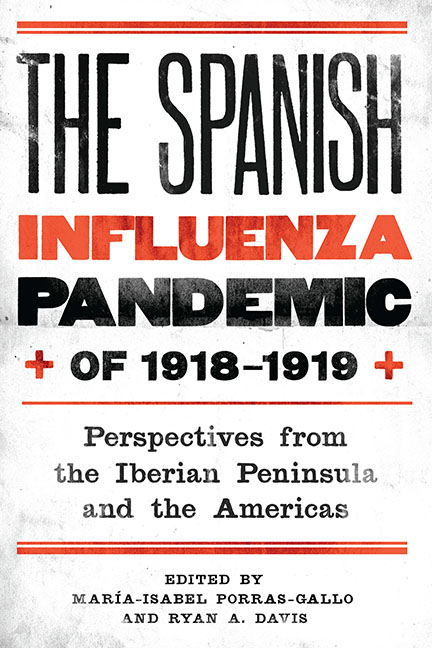 The Spanish Influenza Pandemic of 1918–1919
The Spanish Influenza Pandemic of 1918–1919 Book contents
- Frontmatter
- Dedication
- Contents
- Introduction: Emerging Perspectives of the Spanish Influenza Pandemic of 1918–19
- Part One Scientific Discourse: Now and Then
- 1 The Great Evolutionary Potential of Viruses: The 1918 Flu as a Paradigm of Disease Emergence
- 2 Spanish Flu in Brazil: Searching for Causes during the Epidemic Horror
- 3 Ricardo Jorge and the Construction of a Medico-Sanitary Public Discourse: Portugal and International Scientific Networks
- Part Two Social Responses: Human and Institutional Actors
- Part Three Interpreting the Epidemic: Sociocultural Dynamics and Perspectives
- Selected Bibliography
- List of Contributors
- Index
3 - Ricardo Jorge and the Construction of a Medico-Sanitary Public Discourse: Portugal and International Scientific Networks
from Part One - Scientific Discourse: Now and Then
Published online by Cambridge University Press: 14 March 2018
- Frontmatter
- Dedication
- Contents
- Introduction: Emerging Perspectives of the Spanish Influenza Pandemic of 1918–19
- Part One Scientific Discourse: Now and Then
- 1 The Great Evolutionary Potential of Viruses: The 1918 Flu as a Paradigm of Disease Emergence
- 2 Spanish Flu in Brazil: Searching for Causes during the Epidemic Horror
- 3 Ricardo Jorge and the Construction of a Medico-Sanitary Public Discourse: Portugal and International Scientific Networks
- Part Two Social Responses: Human and Institutional Actors
- Part Three Interpreting the Epidemic: Sociocultural Dynamics and Perspectives
- Selected Bibliography
- List of Contributors
- Index
Summary
Despite the impact of the peste pneumónica—the Portuguese term for the Spanish flu—on Portuguese society, the memory of the pandemic in Portuguese historiography and in public opinion circles has been sparse, with the exception of family oral history and specific social contexts that have kept the tragedy alive (e.g., the death of the painter Amadeu de Sousa Cardoso or the death of the young Francisco Marto, one of the witnesses of the religious occurrence of 1917 known as the “Fátima miracle”). Only recently have scholars begun to offer a more systematic picture of the pandemic experience in Portugal. Paulo Girão and João José Cúcio Frada compare the extension and consequences of the pandemic in the Algarve region (in southern Portugal) and Leiria (in western Portugal), respectively, with the pandemic experience on the international scene. Sobral and colleagues of the Institute of Social Sciences at Lisbon University (ICS) have recently published a collection of interdisciplinary essays on the history of the peste pneumónica that deal with such matters as development, demographic consequences, medical discourses, images, attitudes, and representations of the pandemic event. In adducing a broad sample of primary materials—including national and local newspapers, municipal archives, the medical press, and creative literature—not only does this recent scholarship elucidate our understanding of the Spanish flu in Portugal, but much of it invariably points to the central role of Ricardo Jorge, the country's preeminent public health official at the time in his capacity as director geral da sáude (director general of health).
Born in Oporto in 1858, Jorge studied medicine there, ultimately receiving his degree from the Escola Médico Cirúrgica (School of Medicine and Surgery), which, unlike the traditional Medical Faculty of Coimbra, was famous for its modern scientific training. After presenting his graduate dissertation on neurology, Jorge became professor at the Escola Médico Cirúrgica of Oporto in 1880 and went to Strasburg and Paris—where he attended Jean-Martin Charcot's lectures—for further medical training. While abroad, his professional contact with Louis Pasteur proved a turning point in his scientific pursuits. In 1884 he began a lecture series titled Higiene Social Aplicada à Nação Portuguesa (Social Hygiene Applied to the Portuguese Nation), thus launching a professional phase in which his primary focus was hygiene.
- Type
- Chapter
- Information
- The Spanish Influenza Pandemic of 1918–1919Perspectives from the Iberian Peninsula and the Americas, pp. 56 - 72Publisher: Boydell & BrewerPrint publication year: 2014
